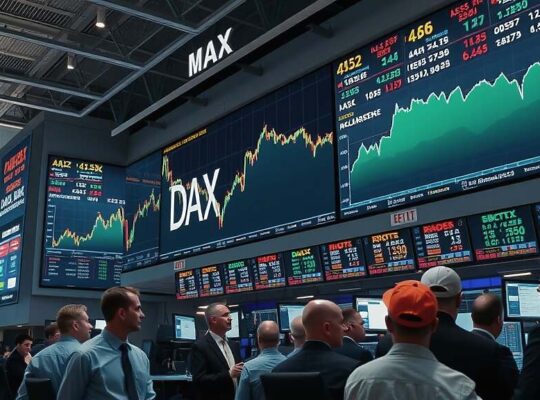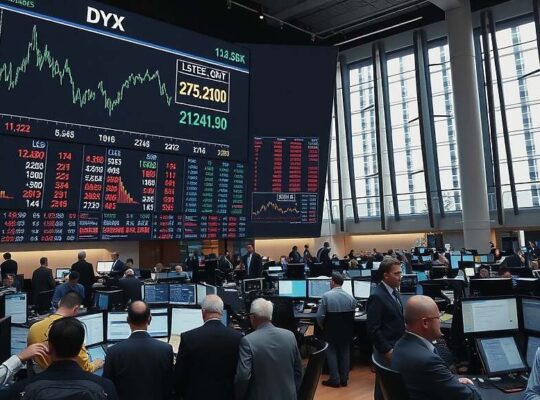The German benchmark index, the DAX, concluded the week with a significant downturn, erasing earlier steeper losses before settling at 23,567 points – a 0.7% decrease from Thursday’s closing value. Over the five-day period, the index experienced a broader decline of approximately 1.7%, reflecting a palpable shift in investor sentiment.
Market analysts attribute the recent volatility, particularly the Friday slump, to heightened concerns within the automotive sector, currently burdened by pervasive pessimism. Andreas Lipkow, a prominent market expert, noted a prevailing trend of profit-taking, with investors actively divesting from previously high-performing stocks, suggesting a broader reassessment of risk exposure. The anticipation of the weekend is contributing to this uncertainty, exacerbating existing anxieties amongst traders.
Adding to the fragility of the market, escalating trade tensions between the United States and China are posing a considerable threat. Experts warn that the situation could intensify over the weekend, likely triggering further declines when markets reopen on Monday. The breach of the 200-day moving average has significantly weakened the technical outlook, reinforcing the potential for continued downward pressure.
The euro exhibited a modest strengthening on Friday afternoon, trading at $1.1577, suggesting a limited respite from the predominantly negative market forces at play. The current instability raises questions about the resilience of the German economy and the efficacy of policy responses to navigate the increasingly complex geopolitical landscape. Observers suggest that the range of 23,000 to 23,400 points will be closely watched in the near term, reflecting a cautious and uncertain outlook for the coming week.












